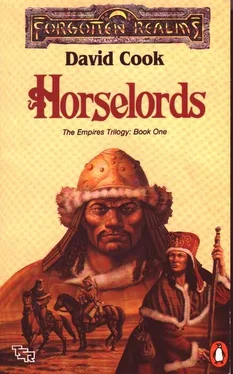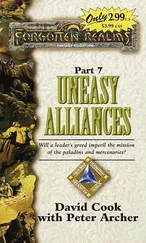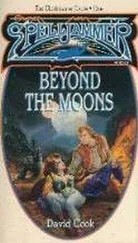David Cook - Horselords
Здесь есть возможность читать онлайн «David Cook - Horselords» весь текст электронной книги совершенно бесплатно (целиком полную версию без сокращений). В некоторых случаях можно слушать аудио, скачать через торрент в формате fb2 и присутствует краткое содержание. Жанр: Фэнтези, на английском языке. Описание произведения, (предисловие) а так же отзывы посетителей доступны на портале библиотеки ЛибКат.
- Название:Horselords
- Автор:
- Жанр:
- Год:неизвестен
- ISBN:нет данных
- Рейтинг книги:4 / 5. Голосов: 1
-
Избранное:Добавить в избранное
- Отзывы:
-
Ваша оценка:
- 80
- 1
- 2
- 3
- 4
- 5
Horselords: краткое содержание, описание и аннотация
Предлагаем к чтению аннотацию, описание, краткое содержание или предисловие (зависит от того, что написал сам автор книги «Horselords»). Если вы не нашли необходимую информацию о книге — напишите в комментариях, мы постараемся отыскать её.
Horselords — читать онлайн бесплатно полную книгу (весь текст) целиком
Ниже представлен текст книги, разбитый по страницам. Система сохранения места последней прочитанной страницы, позволяет с удобством читать онлайн бесплатно книгу «Horselords», без необходимости каждый раз заново искать на чём Вы остановились. Поставьте закладку, и сможете в любой момент перейти на страницу, на которой закончили чтение.
Интервал:
Закладка:
The young priest shook his head, barely looking up from his work. "He is an imperial messenger, so he can use the posthouses. He will ride all day, changing horses at special stations. Then another man will take the message at night." The priest bent back to his work.
Yamun dictated orders for hours, going into minute details for the impending march. By his orders, the army was divided into three wings, with Yamun in command of the center. Troops were assigned, and tumens and minghans dispatched to the different wings. Commanders received orders concerning the amount of food to carry, the number and types of weapons they were to employ, and how many horses each man was to have. The khahan appointed yurtchis, the army's purveyors, to supervise the camps and find supplies as they marched. Many of the orders concerned the condition of the horses, setting penalties for galloping them unnecessarily or working them too hard.
Koja wrote until his fingers were numb. The nightguard came to relieve the dayguard as the sun set. Lamps were brought, and the scribes continued to work by the dim glow.
Finally, Koja walked back toward his tent, the nightguards in his wake. His legs moved mechanically as his mind slowly dozed off. All he could think of was the pile of cushions that waited for him at the yurt-soft cushions and warm blankets that would cradle him while he slept.
When the priest got to his tent, he stopped. A barren circle of crushed grass filled the space where his yurt had stood. In its place were two horses and a camel, hobbled to keep them from wandering, a small mound of sacks and baggage, and the curled-up shape of his servant, sleeping on the ground.
Koja moaned. It was to be another night sleeping under the stars. Searching through the baggage, he found a set of rugs. Resigned to his situation, Koja lay down, using his leather bag for a pillow, and pulled the rugs tight around him. Within a few minutes, lulled by the snoring of his servant, the priest was sound asleep.
In the morning, Koja awoke to find that Quaraband was gone. All that remained was a field of waste-fire scars, muddy tracks, and garbage. A line of creaking carts drawn by lowing oxen lumbered across the green steppe, carrying the households deeper into the trackless plain. Many miles away, in a more secluded spot, the city would be rebuilt by the women and children. There the families would wait until their men returned from war.
File after file of soldiers moved out, leading their mounts across the river and away to the east. The water, normally clear, was a turgid, brown flow. The banks had been turned into quagmires by the churning tread of man and horse. There were shouted good-byes to wives and children, assuring them of their safe return. Horses whinnied; oxen lowed.
An arban of dayguards rode to Koja's camp. "Come with us, grand historian. The khahan commands you to ride with him."
"Wait until I have eaten," Koja requested, refusing to be rushed.
"No," insisted the chief of the arban. "The khahan leaves now."
"But my food-"
"Learn to eat in the saddle," the experienced old campaigner said helpfully. He signaled his men that it was time to go.
Back aching from a night on the ground, Koja gingerly climbed into his horse's saddle and rode to join the khahan's train. Behind him, his servant led a small string of pack animals.
The journey quickly fell into a pattern that would become routine over the coming days. The army moved at a brisk pace; even the oxcarts moved faster than Koja expected. For him, the ride was painful and jolting. The horsewarriors traveled for ten hours a day, stopping only occasionally to let the horses graze and water themselves. Fortunately, the animals were tough, wiry little mounts, much different from the well-bred and magnificent steeds that Koja had seen in Khazari and Shou Lung. Surely, the priest thought, these animals must draw some of their nourishment from the air. With the exception of a small bag of millet at night, the men made no effort to feed the horses, letting them survive on the new shoots of grasses and tough scrub they found on the steppe.
By the time Yamun called for camp on the first day, it was dusk. A few yurts were standing here and there, tents of the khans, but the bulk of the army simply slept under the stars. Each man laid out a small felt rug to use as a mat, taking his saddle for a pillow. The mares were milked and driven into clusters around a single tethered stallion, where they stayed for the night, grazing and sleeping. Each arban camped as a group, kindling a fire at their center. The men worked together to prepare their evening meal.
As the red horizon of twilight gave way to darkness, the glow of campfires covered the plain. Koja ate at the camp of the khahan, served by the quiverbearers. Dinner was a simple stew of dried meat and milk curds, bitter yet bland, brown-gray in color. Nonetheless, Koja ate it with enthusiasm. A meal, any meal, was welcome.
After dinner, Yamun found Koja alone in the dark. "Priest," he began without any preamble, "the khans are unhappy with you. They think you will try to curse the army. A few suggest I should get rid of you." He said no more, but gazed at Koja.
The priest swallowed, suddenly feeling Yamun's stare. "Khahan, as I have said, my duty is to Prince Ogandi. Still, your intentions may not be hostile, so I should not bring misfortune to you," he said in a single breath, not giving Yamun the chance to interrupt.
"No wonder you're a diplomat," Yamun said, sorting out the answer. "Remember this-you owe me your life. You were dead and brought back at my command. Betray me and I'll take it back."
Koja nodded.
That night, the lama returned to his own campfire. Hodj was already asleep. The nightguards sat at a small fire a little way off from Koja's. The lama dug into his bags, finally pulling out the small packet of letters he had written. He opened them and surveyed the sheets he had prepared for Prince Ogandi. Each page was covered with fine brushstrokes, column upon column of neatly arranged characters. The sheets represented hours of work in his tent, hours inking out pages of crabbed text. They were supposed to have been the sum and goal of his existence, at least while among the Tuigan.
"The prince might find these useful," he said to himself. He looked over the yellow sheets of rice paper.
"Or he may already know everything I've written," he countered. "In any case, he will know the intentions of the khahan soon enough."
Koja stared at the pages. Yamun had treated him well, showing him kindnesses and trust far beyond what his position warranted. If he sent the letters, which might not even be useful, he would betray that trust. Koja sighed and paged through the letters again. If he didn't send the letters, would it matter to the prince anyway?
"Yamun Khahan, you are wrong," Koja said clearly, as if there was anyone to hear. "I am a very bad diplomat." He touched a corner of the top sheet to the coals of the camp-fire in front of him. The flame eagerly devoured the flimsy paper. One by one he burned the sheets, watching their ashes rise into the night sky.
In the morning, the letters were only a few crumbled wisps of ash. As Koja rolled awake, Hodj stirred the last of the ashes into the fire. Soon, the servant poured out cups of tea, one thick with milk and salt for himself and the other with butter and sugar for Koja. Apart from the tea, however, this morning's breakfast was different. Instead of boiling a porridge of millet and mare's milk or reheating last night's dinner, the servant spooned globs of a white paste into a leather bag. He filled the sack with water and sealed it tightly, then he hung one bag from the saddle of each horse. Next he took several strips of dried meat and slid them between the saddle and the blanket.
Читать дальшеИнтервал:
Закладка:
Похожие книги на «Horselords»
Представляем Вашему вниманию похожие книги на «Horselords» списком для выбора. Мы отобрали схожую по названию и смыслу литературу в надежде предоставить читателям больше вариантов отыскать новые, интересные, ещё непрочитанные произведения.
Обсуждение, отзывы о книге «Horselords» и просто собственные мнения читателей. Оставьте ваши комментарии, напишите, что Вы думаете о произведении, его смысле или главных героях. Укажите что конкретно понравилось, а что нет, и почему Вы так считаете.












